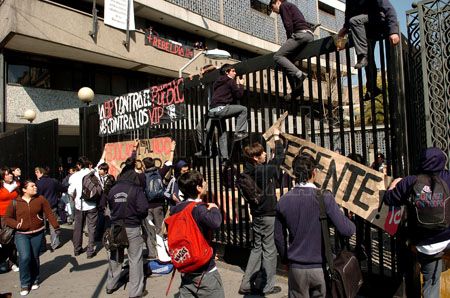By Emilee Gaebler
Impunity Watch Reporter, South America
BRASILIA, Brazil– Preparations for hosting the 2014 World Cup and 2016 Olympics are in full swing. As the Brazilian government works hard to improve the infrastructures of São Paulo and Rio de Janeiro thousands are being forced out of their homes.

The communities that are bearing the brunt of these “urbanization” projects are Brazil’s poorest, the favelas. In Rio de Janeiro, those living in the favelas in the Zona Norte (North Zone) and Zona Oueste (West Zone) are being relocated to make way for new roadways and new buildings.
Berenice Maria das Neves, a resident of one of the favelas leveled in Rio de Janeiro was forced out in late May. She received a summons in the mail to appear at City Hall and once there was told her house had been condemned. She was given a check for 8,000 reais (US $5000) as compensation and her home was a pile of rubble before she even returned from City Hall.
She now faces the challenge of finding a new home, which will be quite the challenge as, “[w]hat use is 8,000 reais? I’d need at least four times as much to find a house to buy” she says.
Carlos Nuzman, the chairman for the Rio Olympics organizing committee, points to the rehousing programs to justify these forced evictions. The three programs; “Vila Nova Chocolatão,” “Growth Acceleration Program” and “Minha Casa, Minha Vida” center on the development of housing projects for low income families in the suburbs of the cities but the projects are far from the city center. Those who do take up residence are forced to live 30 miles or more from where they work.
Human rights groups, monitoring the forced evictions in the favelas, are concerned. Many express worries that this process is simply a ruse; that Brazil is using the World Cup and Olympics as an excuse to push the poor out of the city centers and free-up land for developers to make profits off of.
A local councilor, Eliomar Coelho, said, “[t]his is a clear example of how the government treats the poor. A big opportunity has been missed. Instead of being better off as a result of the boom, these people will end up worse off. It’s a complete violation of their human rights.”
Also disturbing, is the growing number of reports that the militia has taken advantage of the relocation situation. These reports indicate that the militia is forcing newly relocated families out of their low-income houses and then putting the houses up for sale.
For more information, please see;
Global Issues –Brazil: More Community Input Needed In Relocation of Favelas – 5 July 2011
Prospect Journal of International Affairs at UCSD – Human Rights Abuses in Brazil’s Favelas in Preparation for World Cup and Olympics: Rio de Janeiro and São Paulo – July 2011
BBC News – Rio Olympics: Favela Poor Evicted as City Spruced Up – 30 June 2011
The Rio Times – Minha Casa, Minha Vida Phase Two – 21 June 2011
The Rio Times – Favelas Moved for World Cup and Olympics – 10 May 2011



